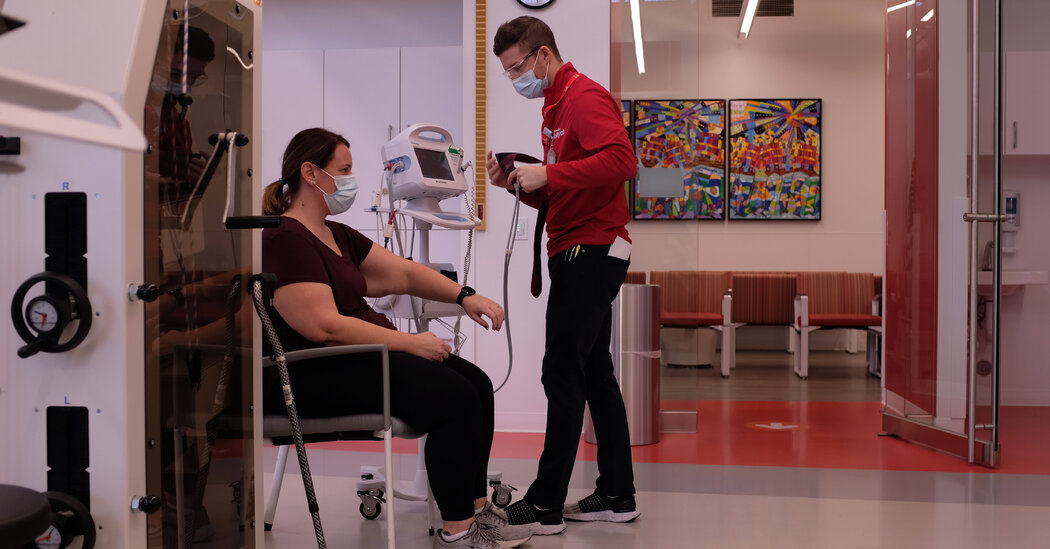The National Academies said the condition could involve up to 200 symptoms, make it difficult for people to work and last for months or years.
One of the nation’s premier medical advisory organizations has weighed in on long Covid with a 265-page report that recognizes the seriousness and persistence of the condition for millions of Americans.
More than four years since the start of the coronavirus pandemic, long Covid continues to damage many people’s ability to function, according to the National Academies of Sciences, Engineering and Medicine, a nongovernmental institution that advises federal agencies on science and medicine.
“Long Covid can impact people across the life span, from children to older adults, as well as across sex, gender, racial, ethnic and other demographic groups,” it said, concluding that “long Covid is associated with a wide range of new or worsening health conditions and encompasses more than 200 symptoms involving nearly every organ system.”
Here are some of the National Academies’ findings, drafted by a committee of 14 doctors and researchers:
How many people have long Covid?
The report cited data from 2022 suggesting that nearly 18 million adults and nearly a million children in the United States have had long Covid at some point. At the time of that survey, about 8.9 million adults and 362,000 children had the condition.
Surveys showed that the prevalence of long Covid decreased in 2023 but, for unclear reasons, has risen this year. As of January, data showed nearly 7 percent of adults in the United States had long Covid.
Diagnosis and consequences
There is still no standardized way to diagnose the condition and no definitive treatments to cure it. “There is no one-size-fits-all approach to rehabilitation, and each individual will need a program tailored to their complex needs,” the National Academies said, advising that doctors should not require patients to have a positive coronavirus test to be diagnosed with long Covid.
